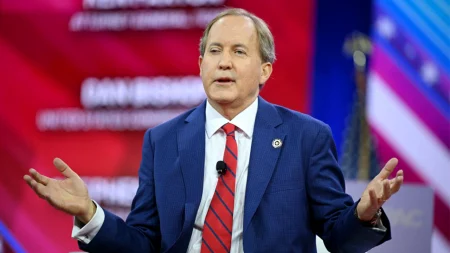Ontario’s Premier Doug Ford: Standing Strong Against Trump’s Trade Policies
The Emergence of a Cross-Border Political Rivalry
In the high-stakes arena of international relations, Ontario Premier Doug Ford has established himself as an unexpected yet formidable opponent to U.S. President Donald Trump. What began as diplomatic disagreements over trade policies has evolved into a notable political rivalry that continues to shape Canada-U.S. relations. Ford, once viewed as Canada’s populist answer to Trump with his “For the People” campaign slogan and business background, has instead become one of the President’s most visible Canadian critics. The Premier has methodically constructed a political persona that directly challenges Trump’s economic policies, particularly targeting the tariffs that have sent shockwaves through Ontario’s manufacturing and agricultural sectors. This calculated approach has not only elevated Ford’s profile internationally but has also positioned him as a defender of Canadian economic interests during a period of unprecedented trade tension between the two historically allied nations.
Strategic Provocations and Public Relations Victories
Ford’s approach to confronting the Trump administration has been characterized by carefully orchestrated public challenges and media-savvy responses that generate significant attention on both sides of the border. Unlike the more measured diplomatic approach often favored by federal officials in Ottawa, Ford has employed a direct communication style that mirrors Trump’s own preference for bold statements and public confrontations. The Premier has mastered the art of the well-timed press conference, often scheduling appearances immediately following U.S. policy announcements that might impact Ontario’s economy. These performances are deliberately crafted to attract media coverage in both Canadian and American markets, ensuring that Ontario’s position receives maximum visibility. Political analysts note that Ford’s team has developed a sophisticated understanding of what generates coverage in the American news cycle, allowing the Premier’s comments to penetrate U.S. media markets in ways that more traditional diplomatic communications rarely achieve. This strategy has transformed what might otherwise be routine policy disagreements into headline-generating confrontations that have reportedly irritated the notoriously thin-skinned U.S. President.
Economic Impact: Ontario’s Manufacturing Sector Under Pressure
The substantive foundation of Ford’s opposition to Trump’s policies lies in the very real economic consequences Ontario has faced since the implementation of various U.S. tariffs. As Canada’s industrial heartland, Ontario has absorbed the heaviest impact of Trump’s protectionist agenda, with its automotive manufacturing, steel production, and agricultural exports particularly affected. Economic analysts estimate that U.S. tariffs on Canadian steel and aluminum alone have jeopardized thousands of jobs across the province and reduced provincial GDP by billions of dollars. The integrated nature of the North American supply chain means that even seemingly targeted tariffs have created widespread disruption throughout Ontario’s economy. Ford’s administration has compiled comprehensive economic impact assessments that detail these effects at both the provincial level and within specific communities that have been hardest hit. These reports serve dual purposes: providing factual ammunition for Ford’s public critiques while also demonstrating to Ontario voters that their Premier is actively engaged in protecting their economic interests. By framing his opposition to Trump in terms of direct economic consequences rather than ideological differences, Ford has managed to maintain support even among conservatives who might otherwise be sympathetic to Trump’s political positions.
Building Domestic Political Capital Through International Confrontation
Ford’s confrontational approach toward the Trump administration has yielded significant domestic political benefits, allowing the Premier to build a broader coalition of support that extends beyond his traditional conservative base. By positioning himself as a defender of Ontario’s economic interests against foreign threats, Ford has tapped into a strain of economic nationalism that resonates across the political spectrum. This strategy has been particularly effective in manufacturing communities where workers who might disagree with other aspects of Ford’s agenda nonetheless appreciate his vocal advocacy on trade issues that directly affect their livelihoods. The Premier’s office has leveraged these international confrontations to distract from more controversial domestic policies, effectively using the high-profile battles with Trump to dominate news cycles and reshape the provincial political narrative. Public opinion research indicates that Ford’s approval ratings typically experience measurable increases following particularly visible exchanges with the Trump administration, suggesting that even Ontarians who didn’t initially support Ford’s election have come to appreciate his willingness to challenge the U.S. President on their behalf.
Diplomatic Balancing Act: Working Behind the Scenes
Despite the public nature of Ford’s confrontations with Trump, provincial officials emphasize that the Premier maintains a sophisticated behind-the-scenes diplomatic operation that complements his more visible challenges. Ford has cultivated relationships with governors of states that have strong economic ties to Ontario, creating a network of American allies who share concerns about the disruptive effects of the Trump administration’s trade policies. These cross-border relationships have provided alternative channels for addressing trade concerns when federal-level diplomacy has stalled. Additionally, Ford’s office maintains regular contact with Canadian federal officials to ensure that his public statements, while provocative, don’t undermine Canada’s broader diplomatic strategy. This two-track approach allows Ford to maintain his role as a vocal critic while still participating constructively in more traditional diplomatic efforts to resolve trade disputes. The Premier has also developed connections with U.S. business leaders whose companies are integrated into cross-border supply chains and who share his concerns about the economic damage caused by tariffs and trade uncertainty. These relationships provide Ford with both additional leverage and valuable intelligence about evolving U.S. policy positions.
The Future of Ontario-U.S. Relations in an Uncertain Trade Environment
Looking ahead, the trajectory of Ford’s relationship with the Trump administration will largely depend on the evolution of U.S. trade policy and its continuing impact on Ontario’s economy. Economic forecasts suggest that the province will continue to face challenges as long as uncertainty persists in the North American trading relationship. Ford has indicated that his administration is developing contingency plans for various trade scenarios, including both potential escalation and possible resolution of current disputes. The Premier has authorized significant provincial resources to support affected industries through targeted relief programs while also investing in economic diversification initiatives designed to reduce Ontario’s vulnerability to U.S. policy changes. Ford’s office has signaled that while the Premier remains open to improved relations with the Trump administration, he will not moderate his advocacy for Ontario’s economic interests regardless of potential diplomatic consequences. This position reflects both political calculation and genuine concern about the province’s economic future in an increasingly unpredictable global trading environment. As one senior provincial official recently noted, “Premier Ford understands that defending Ontario jobs sometimes means being willing to have difficult conversations with our largest trading partner, regardless of how those messages might be received in Washington.”
In this increasingly complex cross-border dynamic, Doug Ford has transformed himself from a regional political figure to an influential voice in international trade discussions. By consistently challenging President Trump’s tariff policies and their harmful effects on Ontario’s economy, Ford has created a political identity that resonates domestically while gaining international attention. The Premier’s ability to balance public confrontation with private diplomacy demonstrates a sophisticated understanding of both media dynamics and international relations. As economic uncertainty continues to characterize the Canada-U.S. relationship, Ford’s approach offers a case study in how regional leaders can effectively advocate for their constituencies on the international stage, even when doing so means directly challenging the world’s most powerful political figure.








